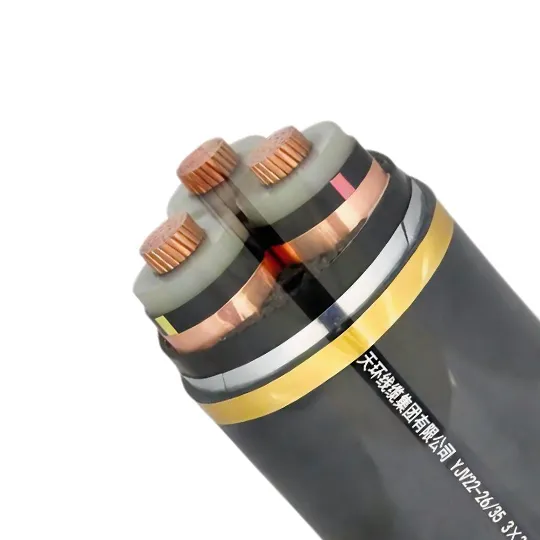
Purchase mineral insulated copper sheathed cables for your electrical needs and projects.
Understanding Mineral Insulated Copper Sheathed Cables A Comprehensive Guide to Buying
When it comes to electrical wiring, choosing the right type of cable is crucial for safety, durability, and performance. One popular option that has gained traction in various industries is the mineral insulated copper sheathed cable (MICC). In this article, we will explore what MICC is, its benefits, and key considerations when purchasing this type of cable.
What is Mineral Insulated Copper Sheathed Cable?
Mineral insulated copper sheathed cable consists of copper conductors surrounded by a mineral insulating material, typically magnesium oxide, which is then enclosed in a copper sheath. This design allows for excellent thermal stability and resistance to fire, making it a preferred choice in high-risk environments such as industrial applications, power stations, and even residential settings.
Benefits of Using Mineral Insulated Copper Sheathed Cable
1. Fire Resistance One of the primary advantages of MICC is its ability to withstand high temperatures without burning or emitting toxic fumes. This characteristic makes it suitable for installations where fire safety is paramount.
2. Durability The copper sheath provides robust physical protection against mechanical damage, moisture, and chemical exposure. This durability ensures a longer lifespan compared to traditional cable types.
3. High Performance With excellent electrical conductivity, MICC allows for efficient power transmission. Its design minimizes the risk of electrical faults, further enhancing safety in residential and industrial applications.
4. Non-combustible Insulation The mineral insulation contributes to the cable’s overall non-combustible properties, ensuring that it remains safe under fire conditions and does not contribute to the spread of flames.
buy mineral insulated copper sheathed cable

Key Considerations When Buying MICC
When considering the purchase of mineral insulated copper sheathed cable, several factors should be taken into account to ensure that you make an informed decision
1. Application Requirements Understanding the specific requirements of your project is essential. Consideration of the environment (e.g., hazardous locations, moisture levels) will influence the type of MICC needed.
2. Cable Size and Specifications Select the appropriate size and specifications based on the load requirements and distance. Issues like voltage drop and amperage ratings are crucial for safe and efficient operation.
3. Compliance with Standards Ensure that the cables comply with relevant industry standards and regulations. Adhering to these ensures the safety and reliability of your installation.
4. Supplier Reputation Research reputable suppliers who provide high-quality MICC. Check for certifications and reviews to ensure that you are purchasing from a reliable source.
5. Cost vs. Quality While it may be tempting to go for cheaper options, consider the long-term benefits of investing in high-quality MICC. The durability and safety it provides can save substantial costs in repairs or replacements down the line.
6. Installation Requirements Depending on local regulations and standards, you may need a certified electrician for installation. Consider the costs associated with hiring professionals if you're not planning on doing it yourself.
Conclusion
Mineral insulated copper sheathed cables offer a unique combination of safety, durability, and performance advantages across a variety of applications. Understanding the key benefits and considerations when purchasing MICC can help you make a well-informed decision that prioritizes safety and efficiency in your electrical installations. Whether you are working on a residential project or a large industrial facility, investing in quality cables is crucial for ensuring long-lasting performance and compliance with safety standards.
-
Reliable LIYCY Cable Solutions for Low and Medium Voltage ApplicationsNewsJul.14,2025
-
Premium Overhead Electrical Wire Solutions for Low and Medium Voltage ApplicationsNewsJul.14,2025
-
Innovative XLPE Electrical Cable Solutions for Modern Low and Medium Voltage NetworksNewsJul.14,2025
-
High-Quality Ethylene Propylene Rubber Cable – Durable EPDM Cable & 1.5 mm 3 Core OptionsNewsJul.14,2025
-
Exploring the Versatility of H1Z2Z2-K 1X4mm2 Cables in Modern ApplicationsNewsJul.14,2025
-
Uses of Construction WiresNewsJul.14,2025
-
Types of Neoprene CableNewsJul.14,2025














